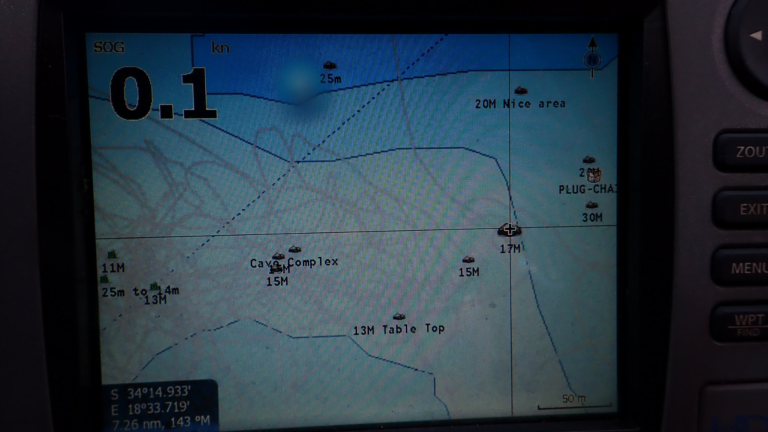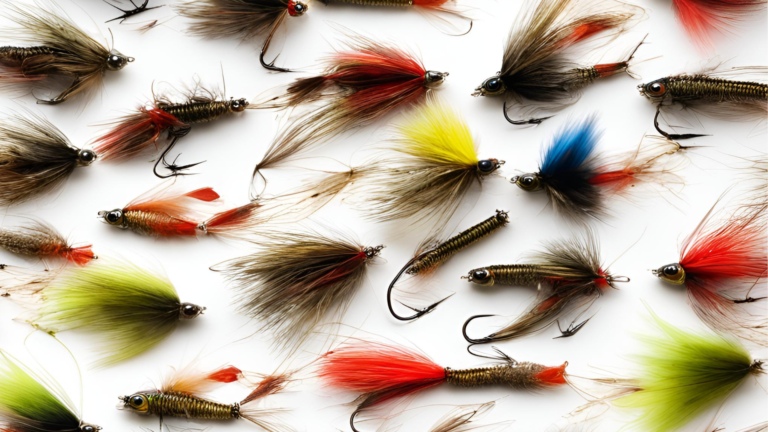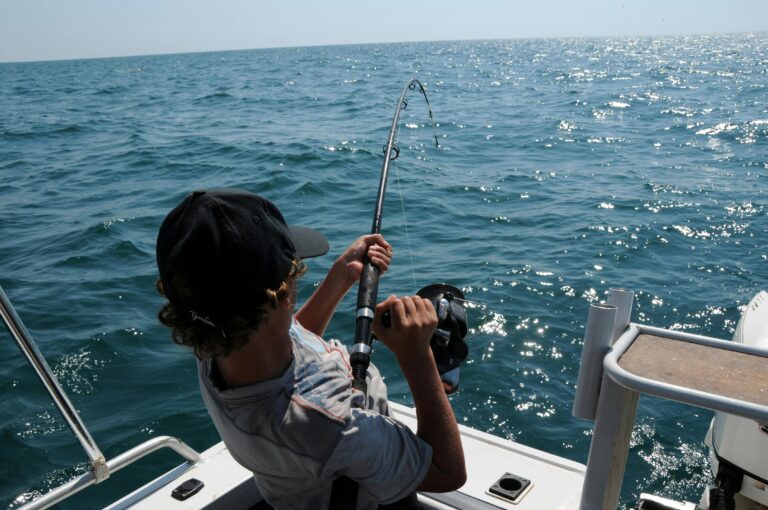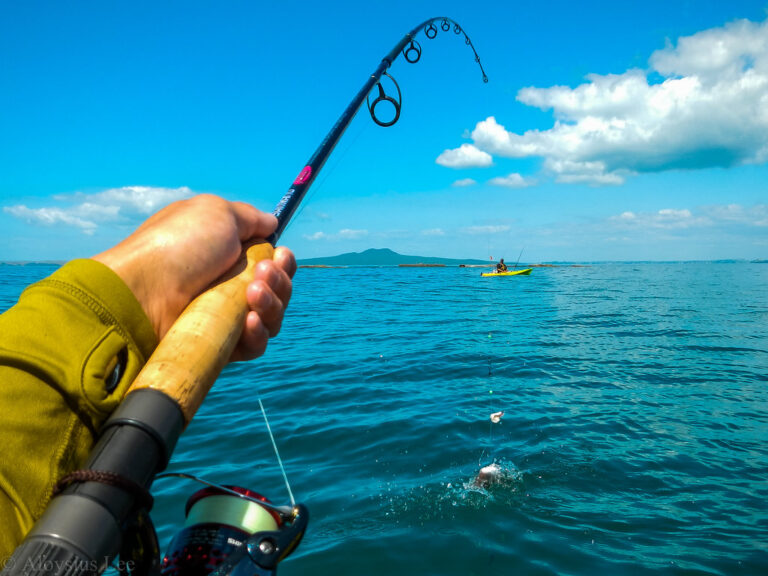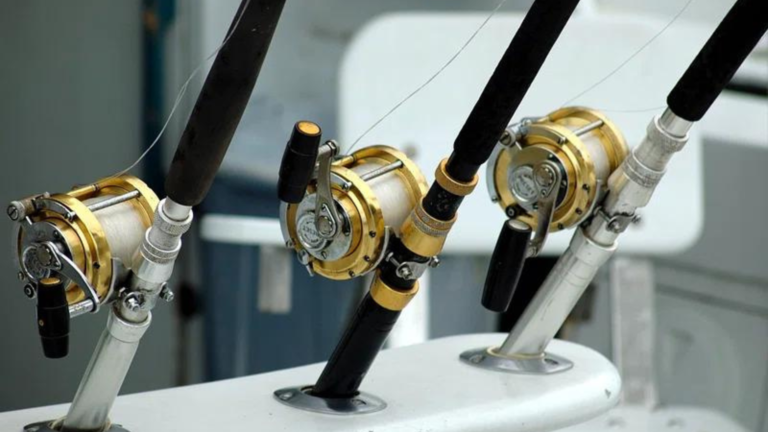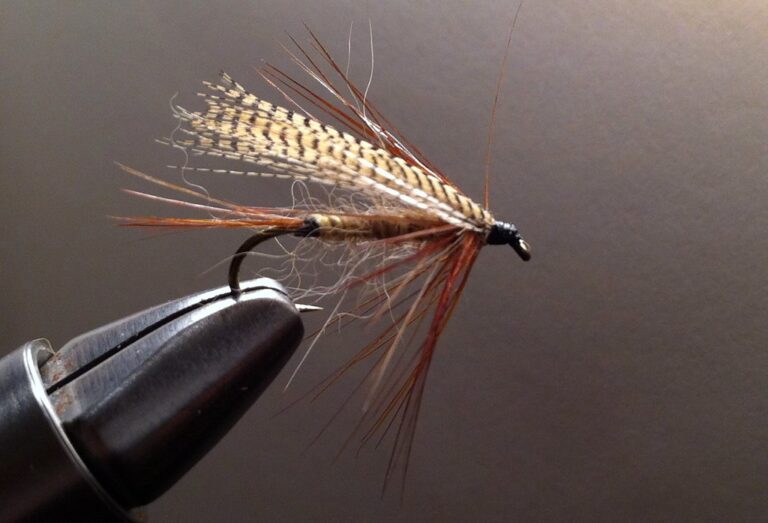How Much Do Fly Fishing Guides Make a Year : Revealing the Income Potential
HOW MUCH DO FLY FISHING GUIDES MAKE A YEAR ? REVEALING THE INCOME POTENTIAL : World wide
Fly fishing guides typically make around $30,000 to $40,000 per year. However, the salary can vary based on location, experience, and demand for their services.
Many fly fishing guides are self-employed and rely on tips from clients in addition to their base salary. Some guides may also offer additional services, such as lodging or equipment rentals, which can increase their overall earnings. We will explore the factors that affect a fly fishing guide’s salary, as well as the job duties and qualifications required for this profession.
Whether you are considering a career as a fly fishing guide or simply curious about the industry, read on to learn more.
Table of Content
- Fly Fishing Guide Income
- Factors Affecting Fly Fishing Guide Income
- Location
- Experience And Expertise
- Demand And Seasonality
- Average Income Of Fly Fishing Guides
- National Average
- Regional Variations
- Factors Affecting Fly Fishing Guide Income
- Additional Income Sources For Fly Fishing Guides
- Tips And Gratuity
- Retail Sales And Gear Rentals
- Benefits And Perks For Fly Fishing Guides
- Access To Prime Fishing Locations
- Networking Opportunities
- Challenges And Considerations
- Inconsistent Income
- Seasonal Nature Of Work
- Tips For Maximizing Income As A Fly Fishing Guide
- Continuing Education And Certification
- Building A Strong Clientele
- Frequently Asked Questions
- Can You Make A Living As A Fly Fishing Guide?
- Is Being A Fishing Guide Worth It?
- How Much Do Top Fishing Guides Make?
- How Much Do Fly Fishing Guides Make On Reddit?
- Conclusion
Factors Affecting Fly Fishing Guide Income
When it comes to the income of fly fishing guides, several factors come into play. These factors can significantly impact how much a guide can earn in a year. In this article, we will explore the key factors that affect the income of fly fishing guides.
Location
The location where a fly fishing guide operates is a crucial determinant of their income. Different locations offer varying levels of demand and potential for earning. For example, guides operating in popular fly fishing destinations like Montana, Colorado, or Alaska tend to have higher earning potential due to the abundance of fisheries and the steady influx of fly fishing enthusiasts.
In contrast, guides in less popular or remote areas may experience lower demand and, consequently, lower income. It’s important for guides to carefully consider the location they choose to operate in to maximize their earning potential.
Experience And Expertise
The experience and expertise of a fly fishing guide also play a significant role in determining their income. Guides with years of experience and a strong reputation for delivering exceptional service often command higher rates and attract more clients.
Expertise in specific fly fishing techniques, such as nymphing, dry fly fishing, or streamer fishing, can also impact a guide’s income. Guides who possess specialized knowledge and skills are often sought after by clients looking to learn or improve in a particular area of fly fishing.
Demand And Seasonality
The demand for fly fishing guides can vary throughout the year and is often influenced by seasonality. Guides may experience higher demand during peak fishing seasons, such as spring or summer when fishing conditions are optimal and more people are looking to enjoy the sport.
However, it’s worth noting that demand can also be affected by external factors like weather conditions, economic trends, or major events. Guides should be prepared for fluctuations in demand and adjust their pricing or marketing strategies accordingly to maintain a stable income.
In conclusion, the income of fly fishing guides is influenced by various factors, including location, experience, expertise, demand, and seasonality. By understanding and effectively navigating these factors, guides can optimize their earning potential and build a successful career in the fly fishing industry.
Average Income Of Fly Fishing Guides
Fly fishing guides can make an average income of around $30,000 to $50,000 per year, depending on their experience and location. Some guides may earn more through tips or by owning their own guide businesses.
Fly fishing guides are people who specialize in taking anglers to the best fishing spots and providing assistance in catching fish. They play a crucial role in ensuring that the fishing experience is enjoyable and successful for their clients. One of the most common questions asked by aspiring fly fishing guides is how much they can expect to earn annually. The answer is not straightforward as the income of fly fishing guides varies based on several factors such as location, experience, and demand. In this article, we’ll explore the average income of fly fishing guides and the regional variations in their earnings.
National Average
According to the Bureau of Labor Statistics, the median annual wage for fishing and hunting guides, which includes fly fishing guides, was $30,780 in May 2020. However, it’s important to note that this figure is an estimate and does not differentiate between various types of fishing guides or their experience levels. Fly fishing guides who work for established outfitters and lodges can earn more than those who are self-employed or work for small companies.
Regional Variations
The income of fly fishing guides also varies depending on the region they work in. Guides who work in popular fly fishing destinations such as Montana, Wyoming, Colorado, and Alaska tend to earn more than those in other regions. The demand for fly fishing guides is higher in these areas, and they can charge higher rates for their services. Additionally, guides who work during peak season, which is usually during summer and fall, can earn more than those who work during off-season months.
| Region | Average Annual Income |
|---|---|
| Montana | $43,000 – $68,000 |
| Wyoming | $36,000 – $56,000 |
| Colorado | $38,000 – $60,000 |
| Alaska | $40,000 – $75,000 |
| Other Regions | $25,000 – $40,000 |
In conclusion, the income of fly fishing guides can vary widely based on several factors such as location, experience, demand, and season. While the national average income for fishing and hunting guides is $30,780, fly fishing guides who work in popular destinations such as Montana, Wyoming, Colorado, and Alaska can earn significantly more. Aspiring fly fishing guides should research the market in their desired location and consider gaining experience by working for established outfitters or lodges before starting their own guide service.
Additional Income Sources For Fly Fishing Guides
Fly fishing guides can earn additional income by selling merchandise, offering photography services, and teaching fly tying classes. The average yearly income for fly fishing guides can vary depending on location, experience, and the number of clients.
Fly fishing guides not only get to do what they love but also earn a decent living. Most of their income comes from guiding fees, but they can supplement their earnings with additional sources of income. In this section, we will discuss two such sources: Tips and Gratuity and Retail Sales and Gear Rentals.
Tips And Gratuity
Fly fishing guides often receive tips and gratuity from their clients. This is not mandatory, but it is customary to tip your guide if you had a good experience. The amount of tip depends on various factors such as the duration of the trip, the guide’s expertise, and the level of service provided. On average, guides can earn anywhere between $50-$200 in tips per trip. However, some clients can be more generous and can tip up to $500.
Retail Sales And Gear Rentals
Another source of income for fly fishing guides is retail sales and gear rentals. Guides can sell fishing gear such as rods, reels, and flies to their clients. They can also rent out gear such as waders, boots, and fishing vests. This is an excellent way for guides to earn extra income as clients are more likely to purchase gear from someone they trust and who has extensive knowledge about fishing equipment. In conclusion, fly fishing guides can earn a decent living from guiding fees alone. However, they can supplement their income with tips and gratuity and retail sales and gear rentals. These additional sources of income can make a significant difference in their overall earnings.
Benefits And Perks For Fly Fishing Guides
Fly fishing guides enjoy a range of benefits and perks that come with the profession, making it an attractive career choice for those who are passionate about the sport. From access to prime fishing locations to valuable networking opportunities, the role of a fly fishing guide offers numerous advantages that go beyond financial rewards.
Access To Prime Fishing Locations
Fly fishing guides are granted access to some of the most pristine and sought-after fishing locations, providing them with the opportunity to explore and enjoy the beauty of nature while pursuing their passion. These locations often offer abundant wildlife and scenic views, making every working day a memorable experience.
Networking Opportunities
As fly fishing guides interact with a diverse range of clients, they have the chance to build strong professional relationships and expand their network within the fly fishing community. This networking can lead to various opportunities for collaborations, fishing trips, and shared knowledge, enriching their overall experience as a guide.
Challenges And Considerations
Being a fly fishing guide can be a rewarding career, but it also comes with its fair share of challenges and considerations. Here are some factors that guides need to keep in mind when it comes to their income and the nature of their work.
Inconsistent Income
One of the biggest challenges for fly fishing guides is the inconsistency of their income. Unlike a traditional 9-to-5 job, where you can rely on a steady paycheck, a guide’s income can vary greatly from month to month. This is because the demand for guided fly fishing trips tends to fluctuate throughout the year.
During peak seasons, such as spring and summer, guides can expect to be busier and earn more money. However, during slower months, like winter, the number of clients may decrease significantly, resulting in a decrease in income. This inconsistency can make it difficult for guides to plan their finances and budget effectively.
Seasonal Nature Of Work
The seasonal nature of fly fishing work is another important consideration for guides. Since fly fishing is heavily dependent on weather conditions and the availability of fish, guiding opportunities may be limited to specific times of the year.
In many regions, the prime fly fishing season typically lasts for a few months, while the rest of the year may have less favorable conditions for guiding. This means that guides need to make the most of the busy season and plan accordingly for the off-season. They may choose to take on alternative jobs or pursue other interests during the slower months to supplement their income.
Additionally, the seasonal nature of the work also affects the overall job security for fly fishing guides. Since their income is tied to the availability of clients and favorable fishing conditions, guides may face periods of uncertainty and potential gaps in employment.
Despite these challenges, many fly fishing guides find the rewards of their profession, such as being able to share their passion for fishing with others and spending time in the great outdoors, outweigh the drawbacks. By understanding and preparing for the challenges and considerations that come with the job, guides can navigate the ups and downs of their income and make the most of their fly fishing career.
Tips For Maximizing Income As A Fly Fishing Guide
When it comes to maximizing income as a fly fishing guide, there are several key strategies you can employ to boost your earnings. From continuing education and certification to building a strong clientele, these tips can help you make the most of your career as a fly fishing guide.
Continuing Education And Certification
Continuing education and certification are essential for fly fishing guides looking to maximize their income. By staying up-to-date with the latest techniques, equipment, and regulations, you can offer a higher level of service to your clients, ultimately commanding higher fees for your expertise.
Building A Strong Clientele
Building a strong clientele is crucial for fly fishing guides who want to increase their annual income. By providing exceptional customer service, fostering positive relationships with your clients, and leveraging word-of-mouth referrals, you can attract repeat business and attract new customers, ultimately boosting your earning potential.
Frequently Asked Questions
Can You Make A Living As A Fly Fishing Guide?
Yes, it is possible to make a living as a fly fishing guide. Many guides earn a decent income by providing their expertise and services to anglers looking for an enjoyable and successful fly fishing experience. It requires knowledge, skills, and building a good reputation in the industry.
Is Being A Fishing Guide Worth It?
Being a fishing guide can be worth it for those who enjoy being outdoors, helping others catch fish, and sharing their knowledge. It offers opportunities for adventure, connecting with nature, and building relationships with clients. However, success depends on factors like location, competition, and marketing efforts.
How Much Do Top Fishing Guides Make?
Top fishing guides can make anywhere from $50,000 to $80,000 annually, depending on location and experience. Their income is often supplemented by tips from clients.
How Much Do Fly Fishing Guides Make On Reddit?
Fly fishing guides’ earnings vary based on location and experience, but they can make anywhere from $150 to $500 per day. Some top guides earn over $75,000 per year. It depends on factors such as tips, number of trips, and the demand for their services.
Conclusion
Fly fishing guides can earn a substantial income through various sources such as tips, private lessons, and seasonal work. With dedication, experience, and a strong client base, they have the potential to make a comfortable living. The opportunities in this profession are vast, and with the right skills and determination, the earning potential is promising.


